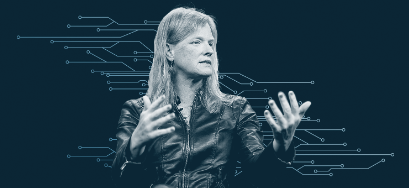Fade In

This week we look at the longterm effects of education and the benefits of multicultural societies.
Research Roundup
Not Fade Away
One of the biggest arguments against universal early education is that in a few years the effects fade away…or do they. Case #746,435b of there is no average person.
When these kids transition to an elementary class where none of the other students have had Pre-K then the benefits do (seem) to fade away, but “with enough treated peers the classic fade-out effect is muted”. In other words, if enough kids get the early boost, then it doesn’t go away. I’m willing to bet there’s a tipping point at which the boosted students even lift the untreated students—another case of the power of peer role models.
And it’s not just the students that benefit. The Pre-K program in the UK “increases weekly childcare coverage by 11 hours.” While the program shows the classic fade-out (or does it really?), “parents work more hours, and their earnings increase by 21.7%. Parents' earnings gains persist for at least six years after the end of pre-kindergarten.” The estimated effect is that “each dollar of net government expenditure yields $5.51 in after-tax benefits for families, almost entirely from parents' earnings gains.”
If we combine the new findings on how to beat the fade out with my own on the latent meta-learning benefits of early intervention, the total benefits to kids combined with those to parents make high quality early education, particularly for at-risk families, the best investment any community can make in its future.
Read more in How to Robot-Proof Your Kids, coming soon!
Love the one you’re with the one you love
Why do some see conversation with strangers as an opportunity for growth and others as a vector for contamination?
As people engage in conversations they converge, developing “more similar self-views post-conversation than pre-conversation”. The more their “self-views aligned, the more they enjoyed their conversation and were inclined to interact again”. I’d love to watch how the temporal lobes synchronize during this process and track the change in dopaminergic rewards delivered by productive conversations. This is the recipe for a healthy multicultural society.
But what if you are afraid to change? People with “a lower sense of personal control were less likely to prefer to live with neighbors who had a different religion, race, or spoke a different language”. They also preferred “coworkers who they perceived to be more self-similar across a wide range of characteristics”. In both the US and China, people used a strong in-group preference as a shield against change when they felt little control over their lives.
Conversation literally brings our identities closer together. That is a threat for some and growth for others.
Learn more about the neuroscience of trust at www.socos.org.
<<Support my work: book a keynote or briefing!>>
Want to support my work but don't need a keynote from a mad scientist? Become a paid subscriber to this newsletter and recommend to friends!
Weekly Indulgence

Join us for a shiny new Mad Science Solves… on Wed, Nov 6th at 11a PST.
Stage & Screen
- How cool to get written up in Nature! We been busting our ass at #Optoceutics putting our time and money into science rather than marketing.
- October 28-19, Rome: Are you as shocked as I that this is my first ever visit to Italy? I'll be talking AI and Humans for the UN.
- November 4, Copenhagen: Novo Nordisk AI Day!
- December 7-8, London: Oxford International Speakers Panel: "What it means to be human in the age of AI"
Does your company, university, or conference just happen to be in one of the above locations and want the "best keynote I've ever heard" (shockingly spoken by multiple audiences last year)?
SciFi, Fantasy, & Me
OK, final season of The Umbrella Academy, it's time to deliver.
- 13 hours of vomitous “Baby Shark”...yes, more…
- Killer Santa and the Time Bandits tube map—more please…
- Oh, a little girl in a slimy package…keep it coming.
- Hippocampus!
Absolutely nothing out of the ordinary can be so poignant.
Vivienne L'Ecuyer Ming
| Follow more of my work at | |
|---|---|
| Socos Labs | The Human Trust |
| Dionysus Health | Optoceutics |
| RFK Human Rights | GenderCool |
| Crisis Venture Studios | Inclusion Impact Index |
| Neurotech Collider Hub at UC Berkeley | UCL Business School of Global Health |